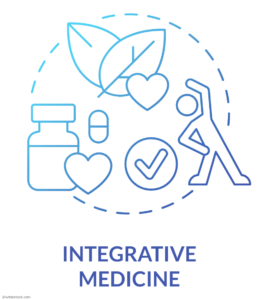 PHILADELPHIA—It is often the case that a holistic approach to the management of autoimmune disease is what patients are looking for and may indeed provide optimal care for these patients. At ACR Convergence 2022, the session titled ACR Guideline for Physical, Psychosocial, Mind-Body and Nutritional Interventions for Rheumatoid Arthritis: An Integrative Approach to Treatment sought to describe the evidence-based recommendations on this subject and the ways in which clinicians can use these guidelines consistently to help patients.
PHILADELPHIA—It is often the case that a holistic approach to the management of autoimmune disease is what patients are looking for and may indeed provide optimal care for these patients. At ACR Convergence 2022, the session titled ACR Guideline for Physical, Psychosocial, Mind-Body and Nutritional Interventions for Rheumatoid Arthritis: An Integrative Approach to Treatment sought to describe the evidence-based recommendations on this subject and the ways in which clinicians can use these guidelines consistently to help patients.
The first speaker was Bryant England, MD, PhD, associate professor of medicine, Division of Rheumatology & Immunology, University of Nebraska Medical Center, Omaha, and VA Nebraska-Western Iowa Health Care System, Omaha. He opened his talk by discussing the 2021 ACR Guideline for the Treatment of Rheumatoid Arthritis and the ways in which topics that patients often hope to receive guidance for, such as exercise, rehabilitation and diet modification, were not addressed in any great detail in this guideline.1
Guidelines for Exercise, Rehab & Diet
Thus, a team was created to tackle these subjects for a separate guideline, and this team included not only rheumatologists but also experts in the areas of exercise physiology, integrative medicine, physical and occupational therapy, social work and other disciplines. Dr. England outlined several guiding principles that the guideline team used in their work, including: 1) rheumatoid arthritis should be treated with disease-modifying anti-rheumatic drugs (DMARDs) as detailed in pharmacologic treatment guidelines, 2) recommendations pertain to rheumatoid arthritis-specific management and outcomes and not to other medical indications or general health benefits, and 3) optimal treatment outcomes are achieved through interprofessional teams providing expert patient-centered care.
Dr. England noted that consistent engagement in exercise is strongly recommended over no exercise, but which type of exercise is up to the clinician and patient to decide through shared decision making—with aerobic and aquatic exercise, resistance exercise and/or mind-body exercises like yoga or tai chi all conditionally recommended. For rehabilitation, the guideline conditionally recommends engagement in comprehensive physical and occupational therapy; many other forms of rehabilitation, which include hand therapy, environmental adaptations and vocational rehabilitation, are also conditionally recommended.
For diet, Dr. England explained that adherence to a Mediterranean-style diet and following established dietary guidelines without dietary supplements are conditionally recommended. Cognitive behavioral therapy, acupuncture and massage therapy were also conditionally recommended, but a conditional recommendation against electrotherapy and chiropractic therapy was given.




